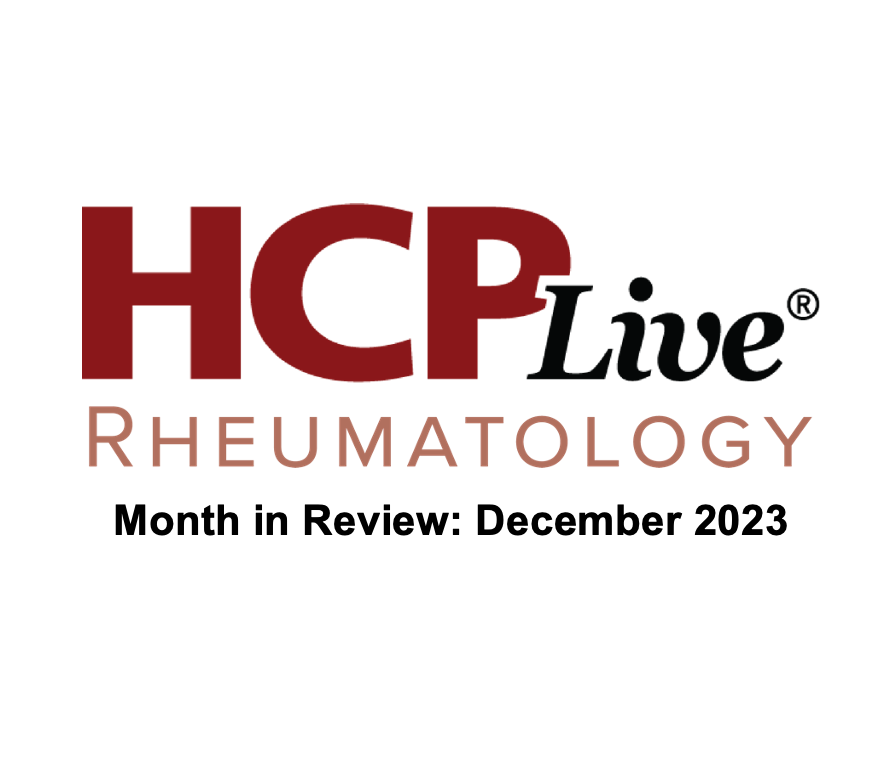Rheumatology Month in Review: December 2023
The rheumatology month in review highlights fibromyalgia complexities, lupus advancements, and dietary links to gout for improved management.

The rheumatology month review underscores the complexities in managing fibromyalgia, showcases advancements in lupus treatment, and emphasizes the critical role of recognizing cognitive impairment in lupus, alongside recent gout research highlighting the link between inflammatory diets and gout risk for better management outcomes.
Challenges in Treating Patients with Fibromyalgia
This month’s fibromyalgia studies highlight challenges faced by patients and emphasize the need for tailored, individualized strategies to effectively address their needs.
Pain Management Remains Challenging for Patients with Fibromyalgia
Results of a database search revealed the management of pain symptoms remains a continued source of frustration and an unmet need for patients with fibromyalgia. Results indicated pharmacological treatment was often rejected by patients due to the side effects, lack of efficacy, and fear of addiction. Patients often reported feeling like “walking chemists” or a “walking pharmacy.”
Regarding exercise, patients either felt it helped keep their pain intensity under control or it exacerbated their symptoms. While going to the gym was mentioned as a main pain management strategy, some patients were fearful of physical activity due to previous negative experiences.
3 Out of 4 Patients with Fibromyalgia Have Comorbid Temporomandibular Disorders
According to meta-analyses, the majority of patients with fibromyalgia had concomitant temporomandibular disorders (TMDs) and approximately one third of patients with TMDs had comorbid fibromyalgia.
“These findings suggest a need for clinicians to consider the overlap between TMDs and chronic widespread pain/fibromyalgia when treating affected populations, and, where appropriate, to consider multidisciplinary approaches to care,” investigators concluded.
Updates in Lupus
The landscape of lupus treatment has evolved with recent advancements in clinical trials and new approaches exploring targeted pathways, signifying a shift toward improved systemic lupus erythematosus (SLE) outcomes. These advancements offer hope for more diverse treatment options and indicate a potential paradigm shift in lupus care, especially considering the unmet needs, side effects of current medications, and persistent morbidity and mortality rates in affected populations.
Advancing Lupus Care: The Changing Landscape of Treatment
The recent approvals of voclosporin, belimumab, and several other biologic disease-modifying antirheumatic drugs (DMARDs) offer a chance to not only improve long-term renal outcomes but also address the challenges associated with conventional immunosuppressants, including poor tolerance, low drug adherence, high disease flare rates, and cumulative steroid toxicity.
There's also considerable excitement surrounding a new approach: CAR-T therapy, which utilizes genetically engineered cells for immunotherapy in autoimmune diseases, including refractory lupus. Although the research involved a small number of patients, the outcomes have been impressive.
Stacie Bell, PhD: The Effect of Cognitive Impairment on Daily Life in Patients with SLE
Recently, there has been increased attention on the neuropsychiatric aspects of lupus, particularly its impact on functioning. People living with lupus often mention experiencing “brain fog” and discuss how the disease affects their ability to work or engage with family and friends. Results of the study strongly indicate a prevalence of cognitive impairment among many individuals with lupus.
This study underscores individuals living with lupus face numerous challenges, including potential cognitive impairment and highlights the importance of openly discussing these concerns with healthcare providers to ensure appropriate care. Bell explained recognizing and addressing these challenges is crucial in supporting patients living with lupus.
The Role Diet Plays in Gout Management
Recent gout research underscores the connection between pro-inflammatory diets and the heightened risk of developing gout, emphasizing the need for specialized dietary plans to manage inflammation levels in individuals at risk of or dealing with gout. Both studies emphasize the importance of understanding and managing modifiable factors to improve gout outcomes.
Anti-Inflammatory Diet May Prevent, Improve Gout
Using data from the 2007 – 2018 National Health and Nutrition Examination Survey (NHANES), comprised of 27,710 eligible adult participants, investigators evaluated whether the Dietary Inflammatory Index (DII) was associated with gout in the United States. To better understand this, multivariable analysis analyzed the link between DII and gout, restricted cubic splines (RCS) determined the nonlinear relationship of DII and gout, and propensity score matching (PSM) was used to further explore potential relationships.
Using the RCS analysis, the risk of gout raised significantly as DII values increased, then the risk flattened, and increased sharply again when the DII was >2.5. Further, results from the PSM indicated DII was positively correlated to the presence of gout on an adjusted multivariable model.
High Waist Circumference, Lipid Levels Predict Poor Gout Outcomes
Over a 2-year period, patients with gout receiving treatment reported reduced lipid levels and relatively unchanged anthropometric measures. Results revealed predictors of unfavorable gout outcomes were high waist circumference and high lipid levels.
“We found that modifiable factors— anthropomorphic and lipid variables—predicted gout outcomes with achieving both the serum uric acid (sUA) target and flares,” investigators concluded. “Our findings give further support to recommended lifestyle changes in patients with gout, but more research is needed on the role of lipids in gout, and on the best provision of education to these patients.”